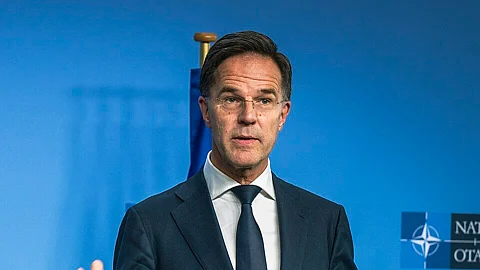

NATO Secretary-General Mark Rutte has expressed growing concern over reports that Russia may be exploring the deployment of nuclear weapons in outer space, a move that would threaten critical satellite infrastructure and violate long-standing international treaties.
In an interview published Saturday by Welt am Sonntag, a German newspaper, Rutte said the potential militarization of space by Russia represents a serious escalation. “We are aware of reports that Russia is examining the possibility of placing nuclear weapons in space,” he said. “The development of nuclear weapons in space is a way for Russia to improve its capabilities. This is very worrying.”
Although such weapons would not be aimed directly at Earth, their potential use against satellites could disrupt a wide array of essential services, including telecommunications, navigation, banking systems, and environmental monitoring. "Space-based systems directly affect our way of life," Rutte said, noting that more than 7,000 satellites currently orbit the Earth.
Rutte emphasized that any deployment of nuclear weapons in space would violate the 1967 Outer Space Treaty, a cornerstone of international space law signed by 114 countries, including the United States and the former Soviet Union. The treaty bans the placement of weapons of mass destruction in orbit or on celestial bodies, though it does not fully prohibit military activities in space.
“Space is just as important for our deterrence and defense as land, sea, air, and cyberspace,” Rutte said, warning that the strategic environment beyond Earth is becoming increasingly contested. “In recent years, space has become increasingly crowded, dangerous, and unpredictable. We know that competition in space is fierce and becoming increasingly bitter — not just in commercial terms. This affects our entire security.”
To address these challenges, NATO allies are enhancing their space resilience by sharing intelligence, developing national space command centers, and investing in smaller, more agile and protected satellite systems.
As tensions rise, the alliance is urging greater international cooperation to uphold the rules-based order in space and prevent a potential arms race beyond Earth’s atmosphere.